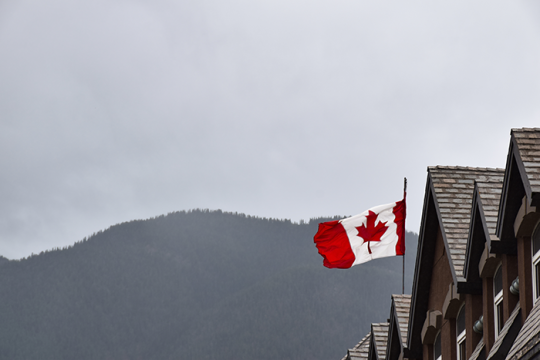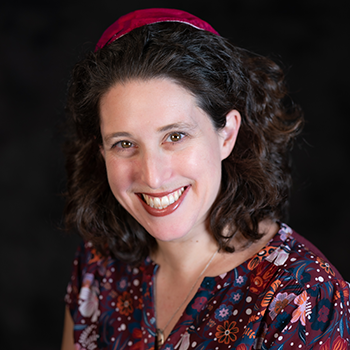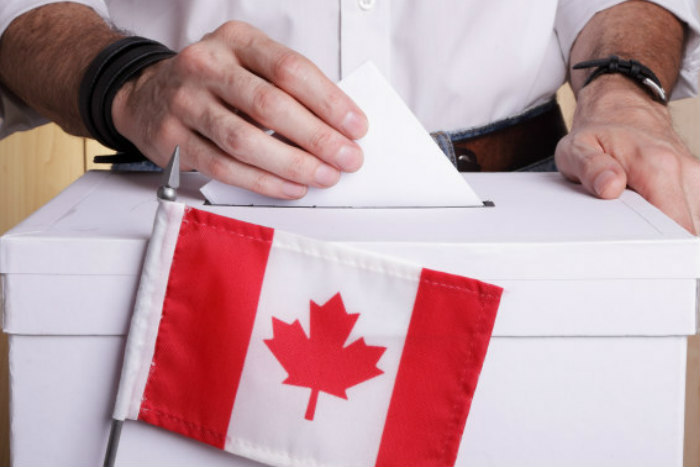
In 2019, Canada’s federal election took place on October 21, the same time as the holidays of Sh’mini Atzeret and Simchat Torah. The overlap offered an opportunity to consider the relationship between our civic rights and obligations and Torah.
Sh’mini Atzeret comes after Sukkot, set by Leviticus 23:36 and Numbers 29:35 as a “sacred occasion” during which we are to “hold a solemn gathering” and “not work at [our] occupations.” As with many other holidays, Sh’mini Atzeret is observed as a two-day festival in traditional Jewish communities in , but as a one-day festival in Israel and in many Reform/progressive Diaspora communities.
In the Middle Ages, Sh’mini Atzeret became associated with marking the end of a yearly Torah-reading cycle and beginning a new one; the second day of the holiday evolved into what we now celebrate as Simchat Torah. Thus, in traditionally observant Diaspora communities, Simchat Torah falls the day after Sh’mini Atzeret, whereas in Reform and other progressive Diaspora communities, it coincides with the celebration of Sh’mini Atzeret.
Canada’s election days are determined based upon previsions outlined in the Canada Elections Act, but the chief electoral officer (who administers federal elections) may recommend an alternate day if the original date set for the election is “not suitable” – for example, if it’s “in conflict with a day of cultural or religious significance.”
Holding the federal election on Sh’mini Atzeret/Simchat Torah can be a challenge for many in Canada’s Jewish communities, as the Jewish prohibition from work on the holidays can be interpreted as a barrier to be able to vote, campaign, or volunteer on Election Day.
In fact, the chief electoral officer’s decision not to recommend changing this year’s election date because of “cultural or religious significance” was challenged in the Federal Court of Canada: A political candidate and campaign volunteer said religious observance of Sh’mini Atzeret would limit them from participating meaningfully in the election, violating their constitutional rights to democratic participation as set out in the Canadian Charter of Rights and Freedoms.
A judge agreed that holding the election on Sh'mini Atzeret would pose problems for some Jewish Canadians and asked the chief electoral officer to reconsider recommending a date change. However, given the challenges of running an election and ensuring sufficient accessibility of voting locations, the chief electoral officer determined that “it would not be advisable to change the date of the election at this late stage.”
Instead, Elections Canada and Jewish community organizations worked to ensure that Jewish Canadians have ample opportunities to exercise their voting rights on alternate days, including special early voting kiosks in synagogues and JCCs to provide more voting options. Voters were also able to vote in advance polls, at local Elections Canada offices, and by mail until the week before the election. Indeed, more than 4.7 million Canadians voted early, an increase of 29% from the previous election.
Voting is more than just a civic duty: Jewish tradition views us working in partnership with God to create a better world (as we pray in , "l’taken olam b’malchut Shaddai"), and numerous rabbis have framed voting as a mitzvah, a Jewish imperative.
Torah calls on us to pursue justice; to care for the stranger, the widow, and the orphan; and to sustain our world. We are taught to “choose life, so that you and your children may live” (Deuteronomy 30). Choosing life is a positive action, conveying that we have to make choices to create the world we want to live in. Voting is such an example of making a choice.
Torah is also clear that the requirement for civic engagement applies not just to our Jewish communities, but to society at large.
The prophet Jeremiah wrote that we are to engage deeply in the communities where we find ourselves, to build houses and put down roots, and to “seek the welfare of the city to which I have exiled you and pray to the God on its behalf; for in its prosperity you shall prosper” (Jeremiah 29: 4-7).
The and the take this even further. Rabbi Hillel said, “Do not separate yourself from the community” (Pirkei Avot 2:4) – in other words, we are to be engaged. Interpreting another passage of the Mishnah that states, “Pray for the welfare of the government, for were it not for the fear of it, man would swallow his fellow alive” (Pirkei Avot 3:2), and 13th-century sage Rabbeinu Yonah interpreted this to mean that governance is about inclusion of all of us:
“[A] person should pray for the peace of the whole world and be in pain about the pain of others. […] As a person should not make his supplications and his requests for his needs alone, but rather to pray for all people, that they be at peace. As with the welfare of the government, there is peace in the world.”
Eighteenth-century biblical commentator Metzudat David added that “praying for peace for the [political] leadership is good because it will then bring peace [back] to you.”
Civic engagement through voting is a fundamental way to be involved in the welfare of our communities.
Elections have a real impact on our everyday lives, for the governments we elect develop policies and programs with local, national, and international implications. Indeed, the Supreme Court of Canada observed that “civic participation is fundamentally important to the health of a free and democratic society.” It also noted that voting ensures “each citizen has an opportunity to express an opinion about the formation of social policy and the functioning of public institutions through participation in the electoral process.”
For all of us, may Election Day be an invitation to celebrate Torah with greater civic and community engagement.
ADDITIONAL RESOURCES:
- "The Commandment to Vote: Jewish Texts on Voting and Fair Elections": Rabbis Mark Hurvitz and Ed Stafman discuss, in depth, the Jewish texts that speak to the mitzvah of voting.
- "What's So Jewish About Voting?": Rabbi Dara Lithwick explains that throughout Jewish history, many of our rabbis and sages have framed voting as a mitzvah.
- The Religious Action Center’s Civic Engagement Campaign: This nonpartisan initiative aims to encourage and empower U.S. Reform Jews to exercise their right to vote. It includes voter engagement resources and more.
- Reform Judaism and Civil Rights/Voting Rights: This page from the Religious Action Center of Reform Judaism shares voting- and election-related content for U.S. voters, including legislative updates and text of Reform Jewish organizations’ policies on election reform.
- “A Blessing for Voting – and Why It Matters So Much”: Rabbi Laura Novak Winer shares a short prayer for Election Day to help “treat that obligation with the reverence such an act deserves."
Related Posts
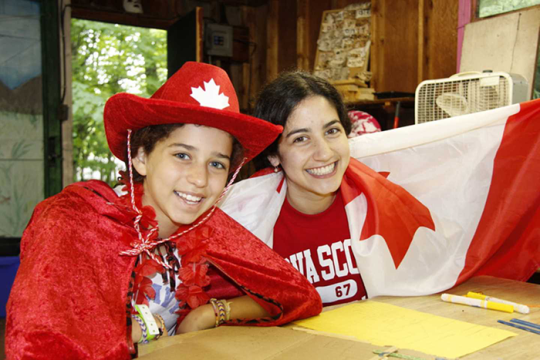
What Canada Day Means to Me
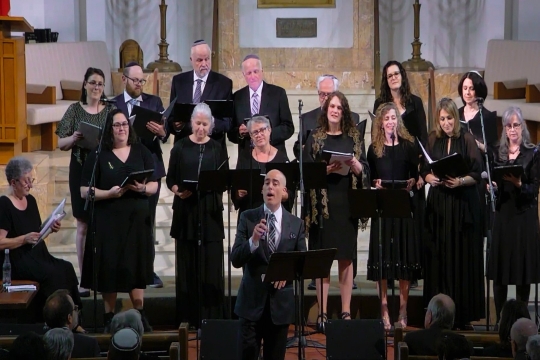
Stronger Together: Canada’s New Cantorial Organization Exhibits the Power of Collaboration
